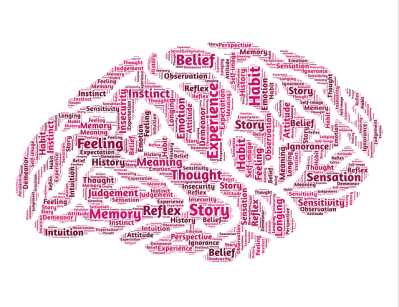 The past two weeks have been very eventful. I think they’ve been way more positive than negative, even if my PTSD symptoms seem to have a mind of their own. I’ve been able to make it to the most important events of the two weeks with one glaring exception: my son’s high school graduation was a Tuesday evening followed by my daughter’s middle school graduation on a Wednesday morning. So, guess what I missed? Yup, the middle school graduation. I don’t think it was good emotionally for either my daughter or for me. I think my Facebook post will sum it up the best:
The past two weeks have been very eventful. I think they’ve been way more positive than negative, even if my PTSD symptoms seem to have a mind of their own. I’ve been able to make it to the most important events of the two weeks with one glaring exception: my son’s high school graduation was a Tuesday evening followed by my daughter’s middle school graduation on a Wednesday morning. So, guess what I missed? Yup, the middle school graduation. I don’t think it was good emotionally for either my daughter or for me. I think my Facebook post will sum it up the best:
Slightly personal. One of the joys of having PTSD: (and no, I won’t tell you where I got it from): I had a good time at (son’s) graduation, but it was a very large, happy (good thing) noisy crowd. I was happy but a bit of a shaking mess by the end. (Daughter’s) Middle School graduation was this morning. I could wake up, but I was semi-paralyzed and could hardly move or speak. I managed a text that I wasn’t doing well, then I missed her graduation. These are the times when having PTSD really stinks the most. I slept for several more hours, having nightmares about trying to get to (daughter’s) promotion. There is no way I can take it back. Then a certain family member was giving me a hard time about having gone to (son’s) graduation instead of Libby’s. Because, you know, as a Mom I always want to make choices like that, and I’m omniscient about consequences. It’s now 3:30 and the tremors still haven’t completely gone away, and I’m still struggling to speak. And (daughter) didn’t have her mom at her graduation.
Mental illnesses aren’t different from physical illnesses in this way. Oh, because wait…mental illnesses ARE physical ilnesses! There’s this weird misconception, which is probably understandable, that because they’re “mental” that people who have them haven’t done the intense mental and physical struggling to try to be everywhere they want and need to be. Just like everyone else, I have to miss things that I want to get to go to more than anything else. I miss things that I didn’t want to go to, and I feel bad about that too! Basically, I have to constantly work on the shame and guilt and good guilt and bad guilt of all the places I both want to go to and don’t want to go to. And some of the things I don’t want to go to are easier to go to (some meetings, for instance) than things I want to go to (I can’t currently do any movies in theaters….how’s that for fun…you want to go there?) But missing my daughter’s graduation takes the cake. For the rest of my life, this will be one of those things that I remember with much more frustration than having to miss a bunch of movies in theaters for a couple of years, or however long it ends up lasting. I can’t make it up. So, my daughter was really understanding. She was upset and disappointed. It was one of those things that incites a combination of feelings. I can’t get into her head and tell you everything that went on, but I can tell you what I know from what she told me and other family members. I can tell you what it was like when I was lying in my bed with most of my body stuck there and not wanting to move, and my head wanting to believe that it was 1am instead of 8 or 9 am, and wishing that someone could stick me on a stretcher or at least offer me a Skype session of it. I’m trying to work on my anger with people who don’t understand. With the people I don’t know very well, it’s not an issue. With a couple of family members, it bothers me and I do take it personally at times. Then I talk it out with a friend or my therapist and the forgiveness comes back. In the meantime, I’m grateful I wasn’t able to slug the person who suggested that I somehow could have made it. I could have, probably, had I missed my son’s graduation. He was in a graduating class of over 1,000 students. How do you decide not to try to make it to that? I had done okay for the few days prior, so I was praying that I’d make both. I had made it to his Baccalaureate and my daughter’s awards assembly. It’s so easy online to see the enormous evidence of how much we all judge others based on 20/20 vision and hindsight. I’m the one who is going to spend the rest of my life knowing that I missed my daughter’s 8th grade promotion. Everyone can….I want to use words that I shouldn’t. I love my family and I love my daughter and I’m going to make it past this somehow. The rest of you who are mostly healthy and get to go to both the things you want to and most of the things you don’t…..think about your health. Don’t make it to everything you want to? Welcome to the lives of everyone else on the planet. And I was touched by how many people understood how I was feeling and reached out to both me and my daughter. And this post ended up long, about just one thing, so I guess I’ll move on to another post for the rest. For what it’s worth. I have way more blessings than I have disappointments. At the very least, I believe this phrase that I heard once, “The sorrows may outnumber the joys, but the joys will outweigh the sorrows.” My blessings here on my trip to CA have far outweighed the sorrows, despite the frustration of missing my daughter’s promotion. And I kept myself from swearing (slightly swearing) over the subject. 😛














